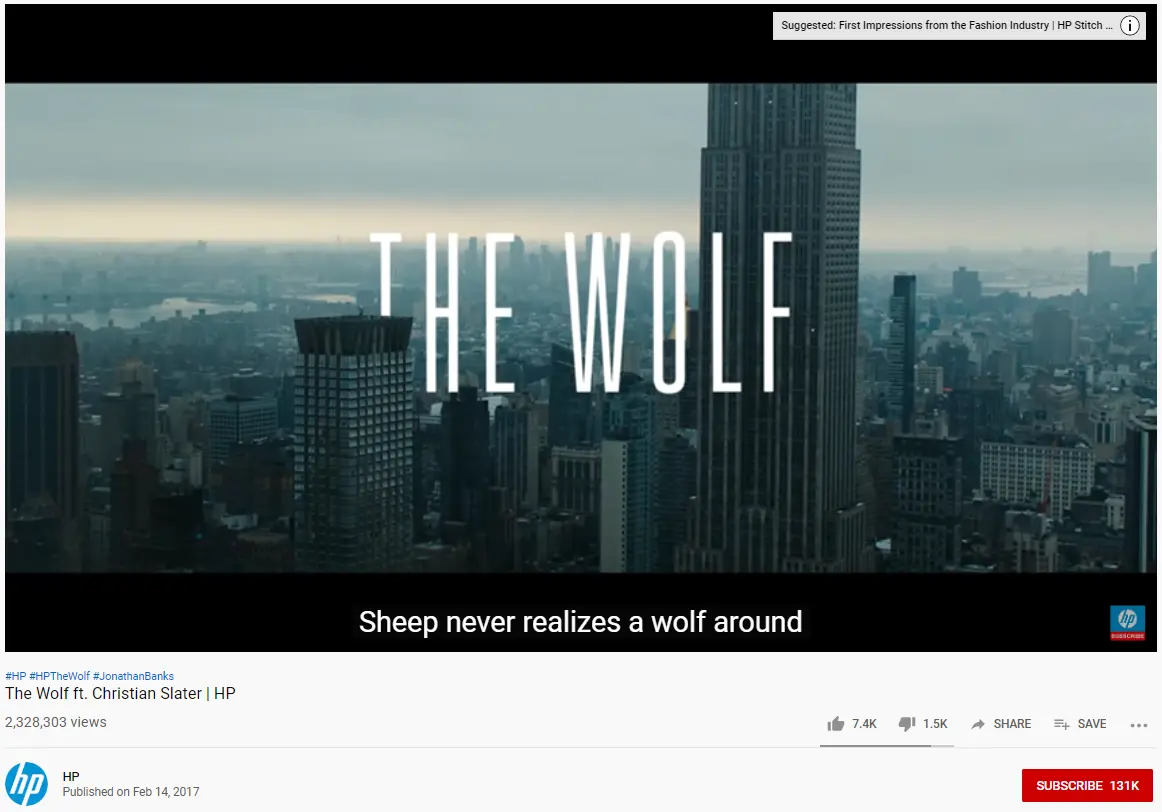There’s no growing your brand without content marketing. Today, it fuels digital strategies, helping more and more brands create stronger value propositions in their markets.
But what types of content marketing material should you be producing?
We’ll answer that question in this blog post. We’ll also connect the dots between each type of content and where and when to use them.
But first, you need to know what makes for great content marketing.
Content is used to guide buyers along the buyer’s journey. It’s all about presenting your ideal customer with the right kind of content at the right time.
In fact, research shows that the days of simply blasting out content are done. According to Content Marketing Institutes 2019 B2B Content Marketing Benchmarks, Budgets and Trends Report, marketers are prioritising audience information needs about sales and promotional messaging.
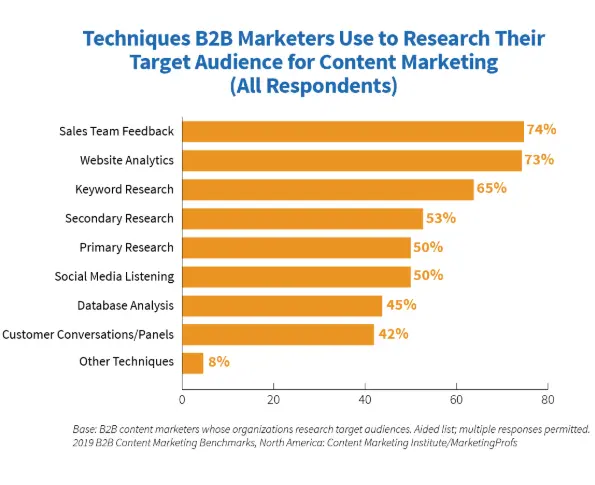
Image: Content Marketing Institute
So, what must you know about your buyer to create content they’ll love?
Personas are the best way to go. But don’t settle for demographical data.
Dig deeper.
Buyers (B2C and B2B) gravitate to solutions for more than budgetary constraints. They need to solve specific problems that directly influence their lives.
For example, if you’re selling B2B accounting software, accountants are buyers. But knowing that they need to perform certain tasks to close out a month isn’t enough.
If, on the other hand, you knew that performing these mission-critical tasks consumes way too much time, and that leads to overtime accountant would rather not experience because they miss family time, you know something important about your buyer.
The more you know about your persona/avatar, the better. DigitalMarketer’s developed what’s become a famous avatar template. It includes what you’ll need to get started. If you don’t have a template of your own, grab a copy here.

Image: DigitalMarketer
With a good understanding of your buyer, it’s time to start creating content they’ll love.
Content fits into the content marketing funnel. In fact, various types of content marketing material is designed to be used as Top-of-Funnel (ToFu), Middle-of-Funnel (MoFu) and Bottom-of-Funnel (BoFu) assets.
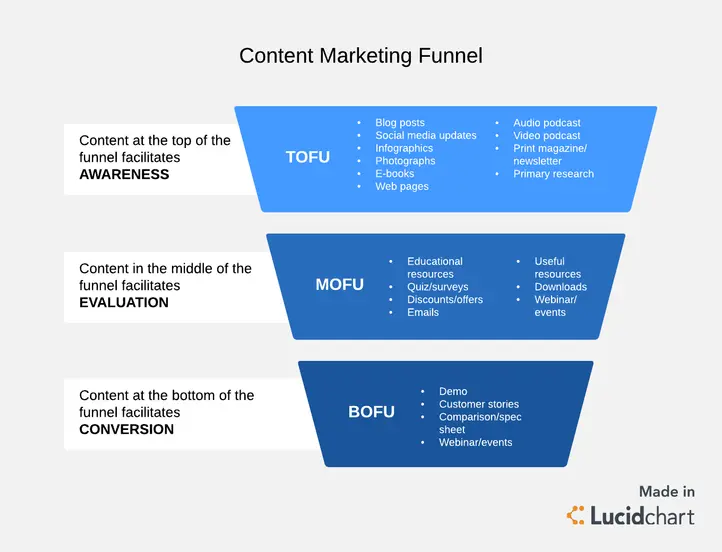
Image: Lucidchart
Let’s take a look at where each type of content fits into the content marketing funnel.
ToFu
ToFu content is used to create awareness around challenges, problems and questions your ideal buyer has. In many cases, your ideal buyers may be aware of some of the challenges they face but not all.
Creating ToFu content helps buyers better understand all the issues surrounding their situation. It’s educational and prepares them for the next stage of your content marketing funnel.
MoFu
Types of content marketing material used in the middle of your funnel include stronger educational assets related to your solution. This content picks up where your ToFu content left off.
MoFu content is used to unpack solution specs, cover features and benefits and provide any additional knowledge or educational material buyer need to move to the next stage in your marketing funnel.
BoFu
We're in the final stretch! Your buyers understand what their problems are and have been able to clearly define them thanks to your helpful ToFu content. They also know a lot about your solution and how it can help solve their problems because of your effective MoFu content.
But what if they need a little reassurance that they are about to make the right purchase decision?
This where BoFu content plays an important role. Bottom-of-Funnel content is used to reinforce the work you’ve done at the top and middle of your funnel.
BoFu content strengthens your brand’s case for the sale through the use of strong social proof. This includes testimonials and case studies.
But that’s not all BoFu content includes. It also comes in the form of demos, webinars and other in-depth content designed to address any final objections to the sale.
As you can tell, having a clear understanding of the stages in your content marketing funnel and where each type of content plays its part is important. Knowing what goes where and why will help you create a high-converting funnel that boosts bottom-line growth.
23 Types of Content Marketing Material to Help Your Business Grow:
Types of Content Marketing Material You can Create
Below is a list of the types of content marketing material you can use. We’ve segmented this list by the stages in the content marketing funnel. We’ve also provided a tip for creating each piece of content and an example to give you context and a little inspiration.
ToFu
Blog posts & Articles
Blog posts are great for generating awareness. But any old blog post won’t do. You must create quality blog posts that address your buyer’s challenges.
Like this blog post, include images and examples. You want to position your brand as the last source of information buyers need to take the next step and start learning about your solution.
For example, DigitalMarketer has produced one of the most in-depth blog posts on developing a content marketing strategy. The post is over 2300 word long and filled with images and video.
It’s designed to help anyone wondering what digital strategy is learn all they need to move along their buyer’s journey.

Image: DigitalMarketer
Press Releases
Press releases are used to get the word out about your brand, product or service. In fact, you can create a press release on just about anything, but make sure it’s newsworthy.
In this example, So Delicious® Dairy Free introduces their new oatmilk creamer.

Image: PR Newswire
Social Media Updates
Social posts are ideal for quick and regular awareness creation. But be smart about how you use them. Know how to talk to your audience and think about each post as part of an ongoing conversation to make yours look and feel personalised.
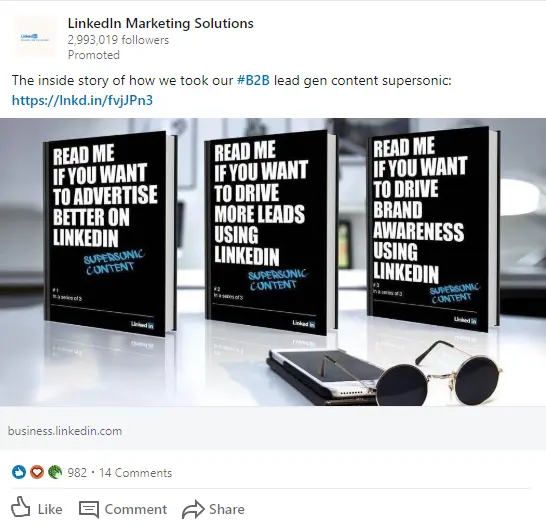
Image: LinkedIn
Infographics
Infographics are great storytellers. They help connect the dots of buyers and are filled with visually appealing graphics that pique interest and hold attention. When producing yours, ensure that your data is accurate and information coherent or you could hurt your brand’s credibility.

Image: Content Marketing Institute
GIFs
Gifs aren’t only for internet entertainment. You can use them as powerful illustrative tools. In this example, Litmus, an email marketing and design solutions provider, shows how easy it is to share email code if you’re a busy team working on an email design together.
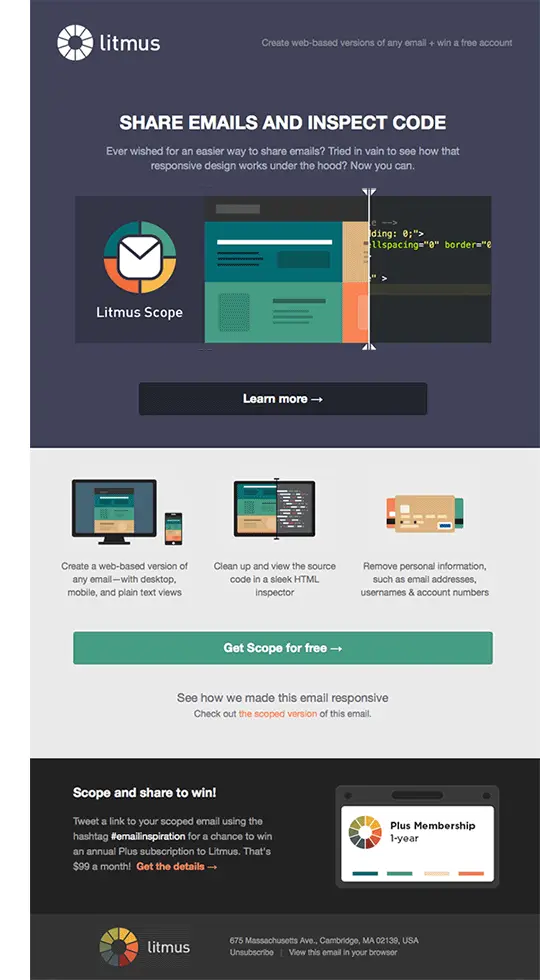
Image: Litmus
Photographs
Photographs are a great way to show a more personalised side of your business. And for prospects wanting to better understand a challenge along their buyer’s journey, photographs can help catch their attention.

Image: Google on LinkedIn
E-books
E-books are helpful resources for buyers looking for information. When crafted correctly, they can be more than just resources, they become effective branding and sales tool.
When you plan your next e-book, ensure it’s as value-packed as possible. But don’t stop there. Include a call to action to engage your brand for help with another equally challenging problem your buyer may have.

Image: Websitetooltester.com
Web Pages
There’s no shortage of web page content today. But that doesn’t mean that you shouldn’t create strong content. In this example, DigitalMarketer has built one of the most thorough guides to digital marketing.
The idea: educate buyers and rank high in search engines. This guide helps them accomplish both.
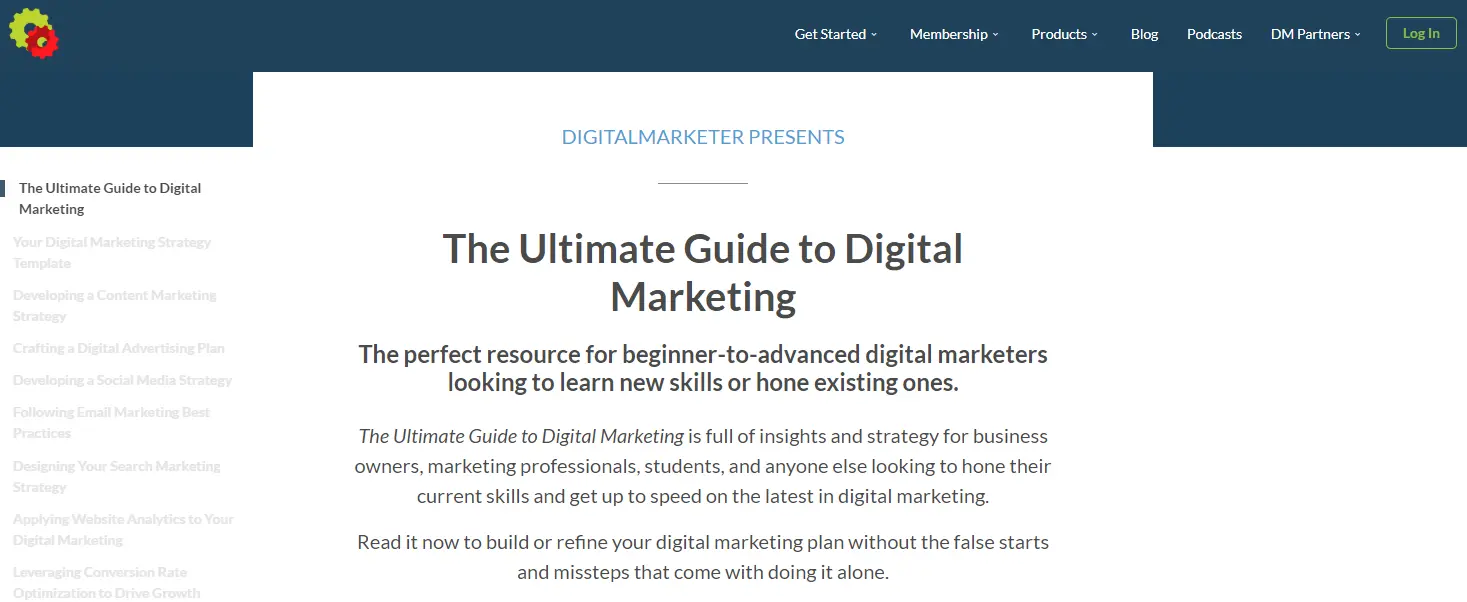
Image: DigitalMarketer
Audio Podcasts
Audio podcasts are huge! Today, they aren’t just for internet marketers or influencers, businesses are using them, too.
But to break into the podcast space, you’ve got to produce something worthwhile. Your content has to be high-quality, fresh and useful.
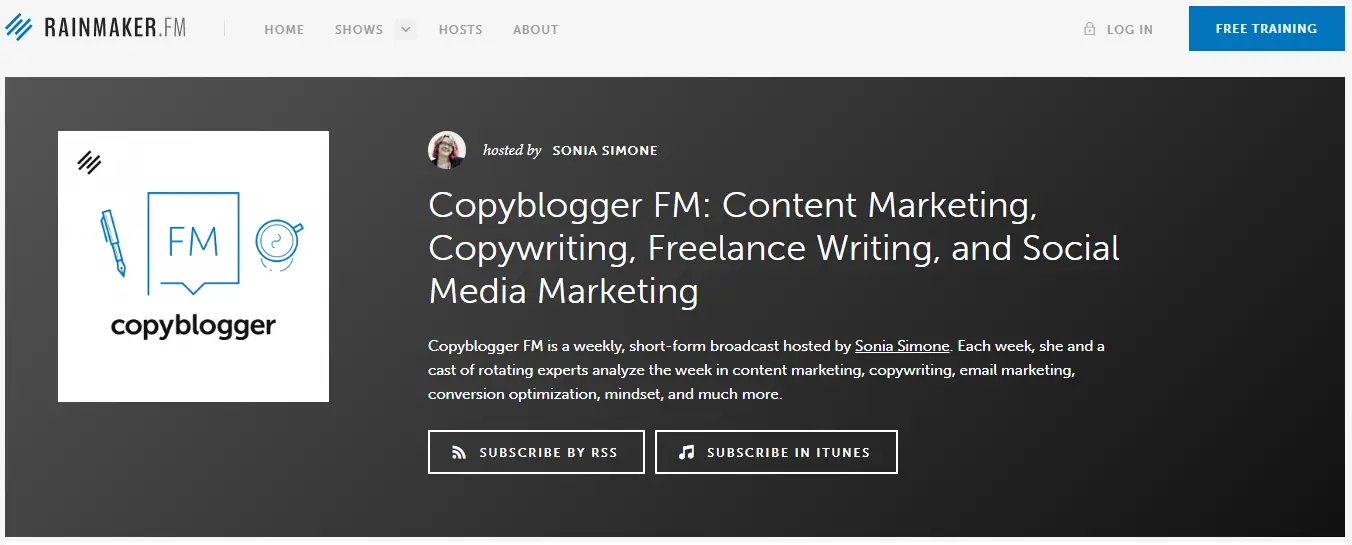
Image: Copyblogger FM
Video Podcasts
Video podcasts may not get as much attention as audio podcasts, but they’re just as successful. As the world consumes more video, creating one for your brand is sure to make an impact. But like audio podcasts, it has to be something special or yours won’t get the traction it needs.
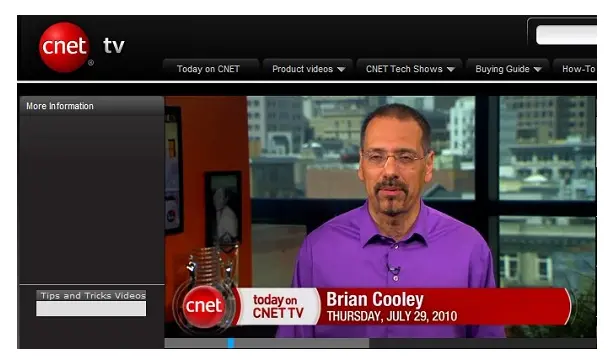
Image: Make Use Of
Live streams, Social Media Stories
Live streaming has grown in the last few years. Spurred on by social media, it’s become an effective way to engage live audiences for a relatively inexpensive fee.
Like all video, live stream has to be a well-planned exploration for your brand. Make your content appeal to your buyers by focusing on issues that they need solved or they’ll lose interest.
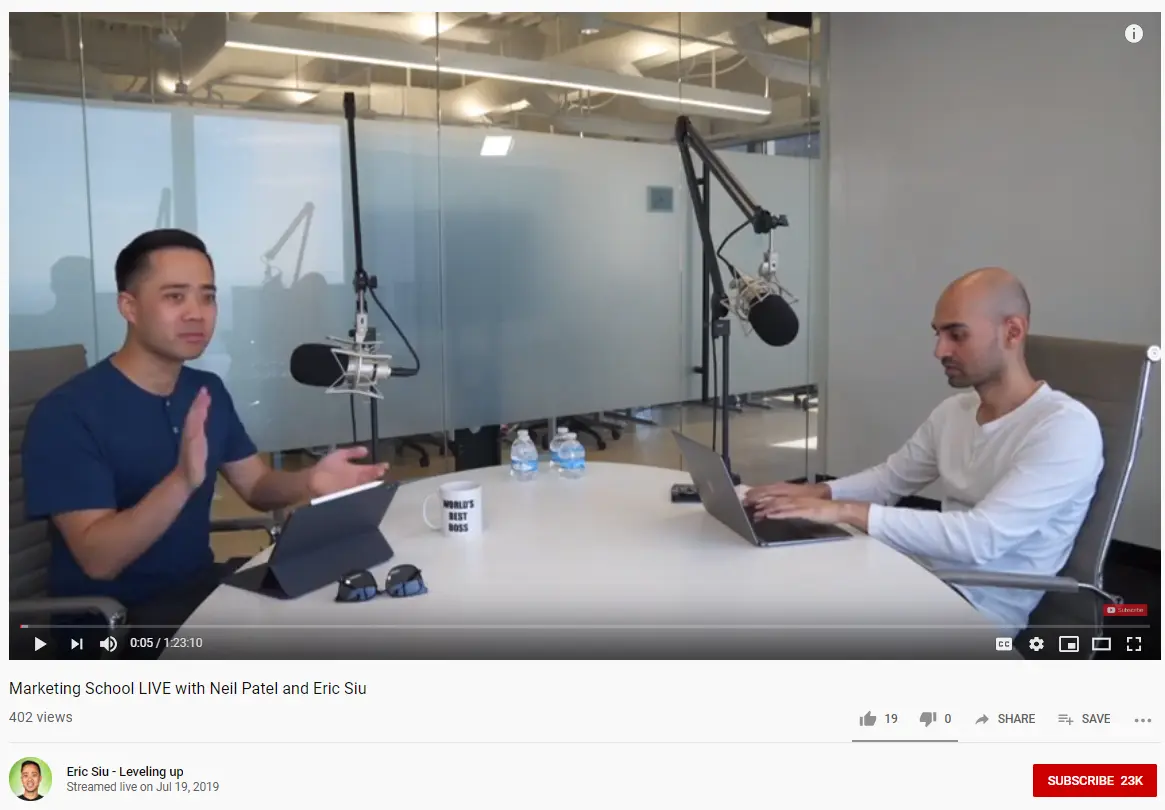
Image: Eric Sui on YouTube
Short Films and Documentaries
Brands use short films and documentaries as storytelling tools. And they are very successful. In the example below, HP exposes unknown IT security threats that businesses face daily.
Starring Christian Slater, HP delves into the motives hackers have and the consequences unsuspecting businesses have to deal with.
Newsletters
Email is definitely not dead. It’s very much alive and helping businesses engage prospects along their buyer journeys. But like all marketing material, you’ve got to capture and hold your buyer's attention.
And when it comes to newsletters, it’s very easy to unsubscribe, so be sure to make every word in yours count. Educate your audience, provide value and always make an offer.

Image: Lyfe Marketing
MoFu
Quizzes
Quizzes aren’t just the flavour of the month, they are high-converting marketing tools. Research by LeadQuizzes pegs the average quiz lead capture rate at 31.6%.
Quizzes are interactive, and in a world where much of the information shared is pushed at you, being able to interact with an app in realtime is different and interesting.
In this example, Neil Patel’s quiz is designed to help participants increase their website traffic.

Image: Neil Patel
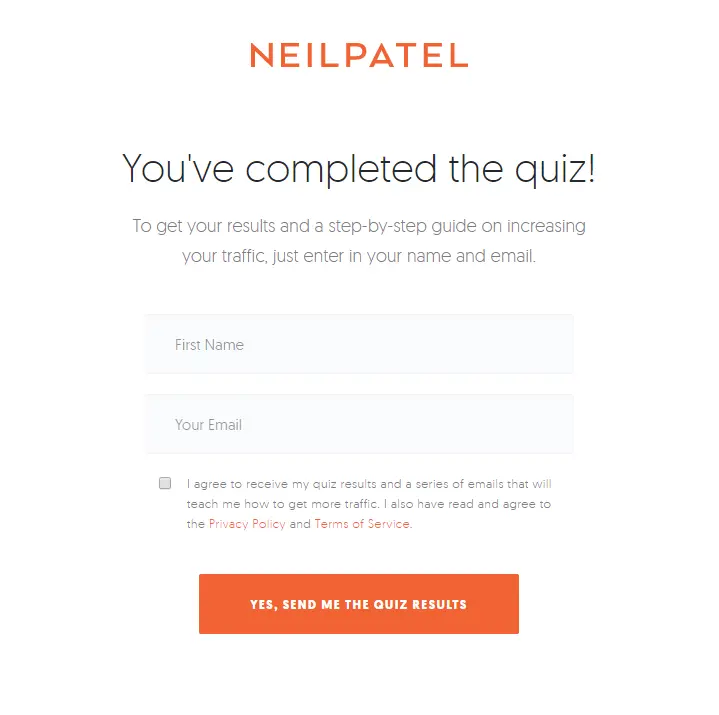
Image: Neil Patel
Discount Offers
Everyone loves a good deal. But it can be hard to create an offer really worthwhile. Truth is, most people are wary of spam and few want more of it, so signing up for any offer isn’t enough.
When well-designed, discount offers can be highly effective. You can deliver them via web pop-up or email.
When creating your next offer, focus on discovering what it would take to get your buyer to take the next step in the buyer’s journey.
Discount offers are best used to sell to buyers who need less convincing than those that require more hand-holding or have education gaps. Figure out what the customers ready to buy could do with and package that as an offer.
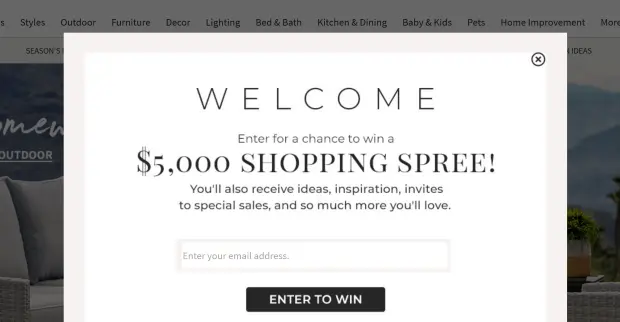
Image: Optinmonster
Emails
Smart emails get subscribers to take action. When it comes to using email for MoFu goals, yours should be well designed and also have strong conversion copy.

Image: Sumo
Guides
Guides, like e-books, should be helpful. Guides, however, should be packed with insight and/or practical information on how to tackle or think about a specific problem.
As you plan your next guide, get specific. In the Bulletproof diet roadmap, you receive a complete breakdown of what to eat, when to eat, and how to prepare your food. You also get information on why each food is important for your good health and wellbeing.

Image: Bulletproof
Slide Decks
Slide decks have become one of the proponents of an influx of information. But unlike much of the repackaged blog posts and web content available today, slide decks share more valuable and insightful information.
As a Middle-of-Funnel tool type of content, they help fill any knowledge gaps buyers may have.
If you have a slide deck that you think will help accelerate your sales process, share it with the world by posting it on Slideshare.
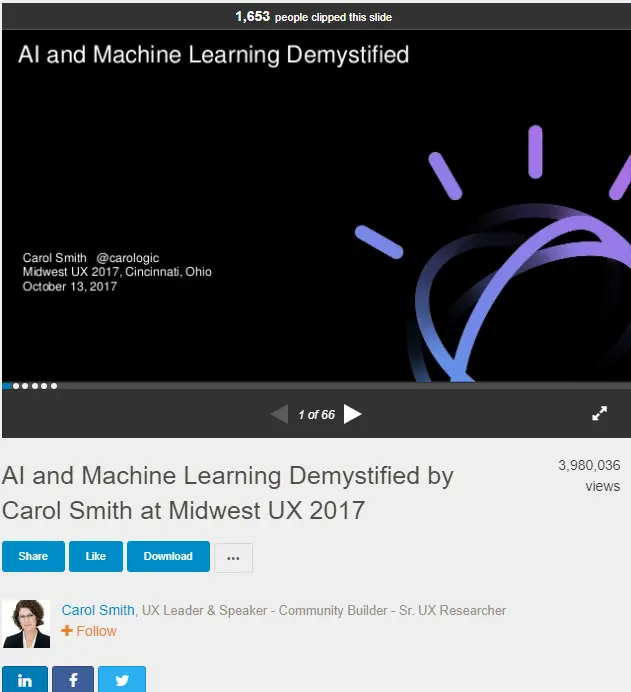
Image: Carol Smith on Slideshare
Whitepapers
Whitepapers where the original research tools for buyers and still hold their weight. They offer buyers unbiased information on what to consider before making any financial commitments.
But not all whitepapers are created equally. To make yours strong, attractive and sought-after, create something with a different perspective. If you can, interview an industry specialist and get inside and in-depth knowledge few have access to.

Image: Paperflite
Reports
Reports are a smart way to generate leads. They’re attractive to anyone wanting to know what’s moving their industry and how they can get ahead of the pack.
Reports, however, must be accurate and also considered a sales tool. This means that yours should be focused on presenting insightful stats and figures, and also introduce your brand as a trusted solutions provider along the buyer’s journey.

Image: Smart Insights
BoFu
Webinars
Most marketers have experienced their fair share of webinars. As a marketing tool, webinars have been known to convert at as high as 22%. In fact, 60% of marketers say they use webinars in their content marketing strategies.
To maximise on your webinars, consider investing in software that produces on-demand webinars. Solutions like Webinarjam and EverWebinar will make it possible to serve up your best and highest-converting webinar content 24/7 for a monthly fee.

Image: Social Media Examiner
Case Studies & Testimonials
Your buyer’s in the final stretch and needs a little nudge to become a customer. What do you do?
Send them social proof.
Case studies and testimonials are the perfect BoFu content. They reinforce brand credibility. They appeal to a psychological trigger that buyer’s respond to, which is the need to see other people who’ve made the same move and been successful.
Create your customer stories with more than just the normal problem-solution approach. Make them interesting and dig into the issue. Use quotes from customers and also highlight the impact of issues beyond just business gain. Talk about the greater benefit of a successful implementation of your solution.
Did your product help your customer better serve their customers? Did your team show the customer a bigger picture of the problem than they initial saw?

Image: Microsoft
Comparison/Spec Sheets and Web Pages
Comparison and spec sheets are powerful, fact-based content marketing tools. They’re ideal for filling any lingering questions about the capabilities of your solution, while also reinforcing the strength of your brand and solution.
And while they are fact-based, you don’t need to pass up on the opportunity to use strong conversion copy. Xero takes a stab at Quickbooks with smart copy targeted at buyers who want more than Quickbooks has to offer.
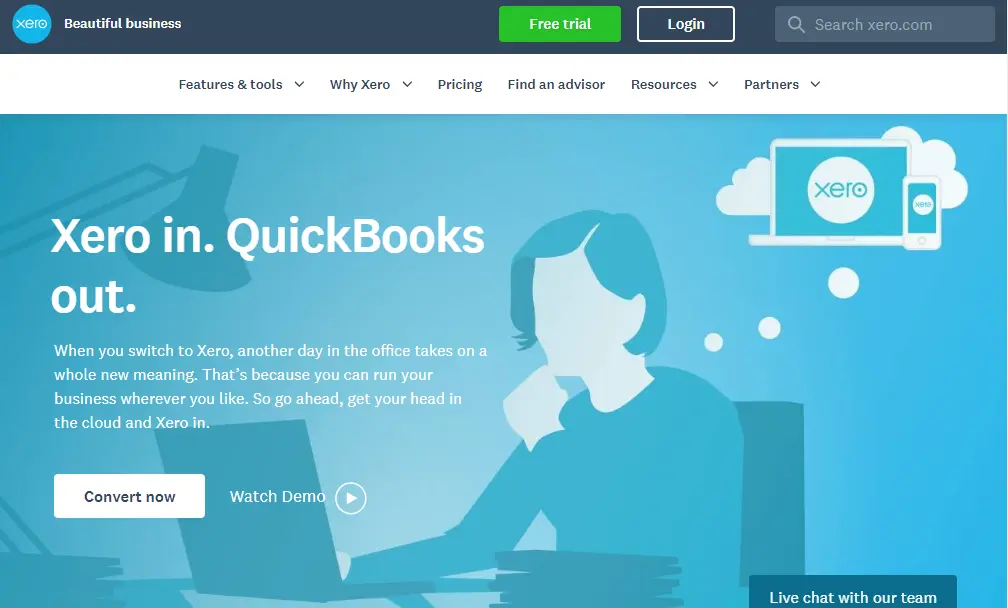
Image: Xero
Wrapping this up…
Building an effective content marketing funnel is essential. When well-designed, it can convert buyers into paying customers faster, leading to positive bottom-line results.
When constructing your funnel, fill it with the types of content marketing material that will move your buyers to the next step in their journey. This includes strong ToFu content to attract new visitors, effective MoFu content to convert visitors into leads, and powerful BoFu content to help close the sale.



